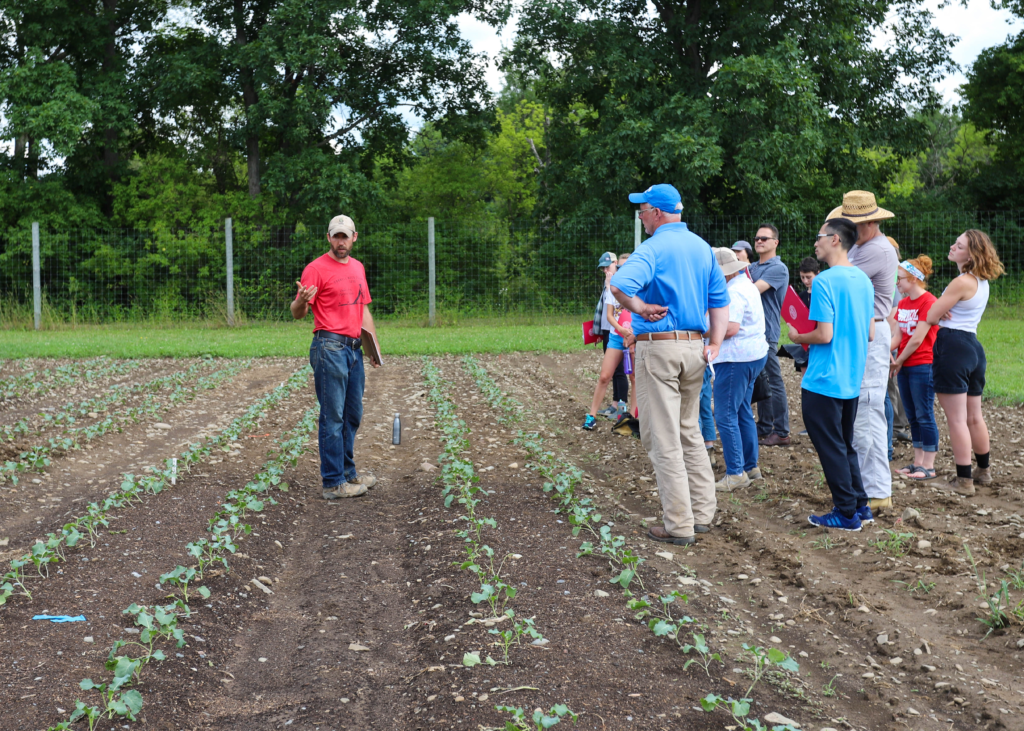In the News: Deep Dive into Compost
Reduced tillage practices and weed suppression management are common goals of small-scale organic farmers.

Soil health specialist, Ryan Maher, explains reduced tillage techniques to a crowd at a soil health field day. Kacey Deamer / Cornell Small Farms Program
A lesser-known method is deep-composting, which was presented by the Reduced Tillage Project and a team of Cornell University researchers at the Northeast Organic Farming Association (NOFA) Winter Conference as a solution to weed suppression in a reduced tillage system.
While compost is commonly used as an amendment to soil health, the act of deep-composting is using compost as a mulch. The compost is applied at the rate of one to four inches on the surface of the soil and crops should be planted directly into the compost.
Benefits of using compost as a mulch include the burying of weed seeds, extinguishing light for living weeds, and the same benefits as using compost as a soil amendment—increasing organic matter and nutrients for the soil.
Our soil health specialist, Ryan Maher, who leads our Reduced Tillage project, was one of the presenters on deep-composting strategies at the conference.
“Farmers are literally feeling the benefits of compost mulch [and] easier planting and weeding in no-till conditions,” Maher told New York Soil Health.
However, Maher cautions that there are risks to deep-compost, “we should consider the risks of nutrient loading, and bringing together farmers to learn and talk more about the tradeoffs.”
The risks of nutrient loading are phosphorus run-off, which can lead to detrimental effects on waterways. As most compost is high in animal manure, the over-application leads to a process called “eutrophication” which causes excess algae growth and strips oxygen from the water system and kills fish and other aquatic species.
While deep-compost has great benefits, farmers can mitigate risk by regularly testing compost and soil to monitor nutrient concentrations.
Deep composting is one tool in a tool-kit for reduced tillage and weed suppression. Ryan was highlighted as a “New York Soil Health Researcher” and shared his project, using deep-composting and tarps for weed suppression, in the video below.

